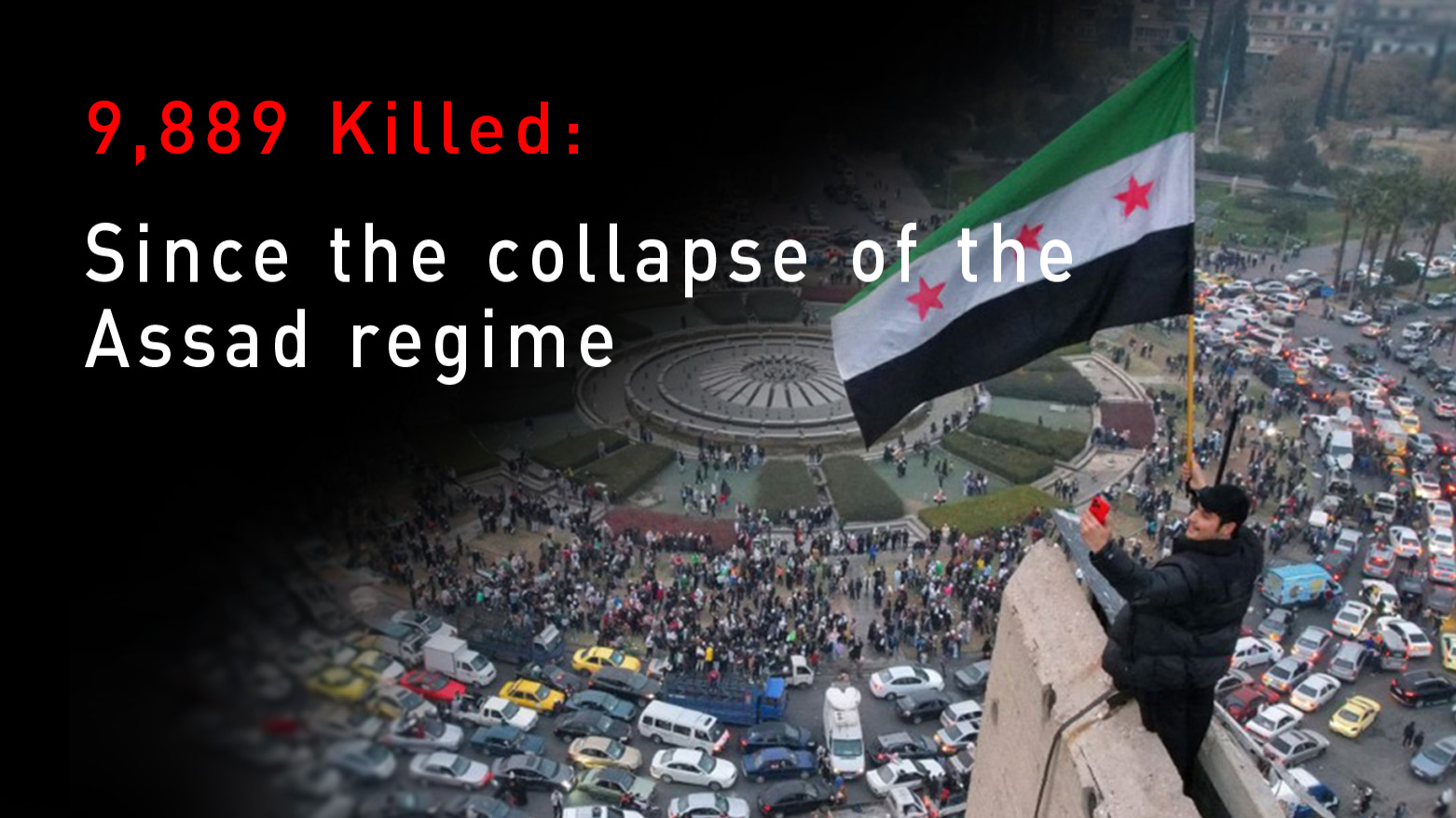Eight Months After Assad’s Fall: 9,889 Killed Amid Lawlessness and Sectarian Violence in Syria
Syria in chaos: 9,889 dead in 8 months post-Assad, including 7,449 civilians. SOHR documents 2,535 summary executions, rampant impunity, and systemic violence as power vacuum fuels instability.

ERBIL (Kurdistan24) – Eight months have passed since the collapse of the Assad regime and the dismantling of its military and security institutions, leaving behind a vast political and security vacuum across Syria. The power void has plunged the country into widespread instability, with mounting violence, targeted killings, and systematic violations documented by the Syrian Observatory for Human Rights (SOHR).
Between December 8, 2024, and August 6, 2025, SOHR recorded the deaths of 9,889 individuals across Syria, including 7,449 civilians, among them 396 children and 541 women, reflecting the severe deterioration of public safety and the rising threat to the most vulnerable communities.
Among the most alarming findings is the documentation of 2,535 cases of summary execution, many carried out based on sectarian or political identity. These extrajudicial killings, described by SOHR as “brutal,” have undermined efforts toward building a democratic and inclusive Syrian state.
The deadliest month was March 2025, which saw 1,726 summary executions following coordinated attacks on military and security checkpoints in Syria’s coastal regions.
SOHR warns that such killings were not random acts of violence, but part of a systematic campaign aimed at deepening social divisions and obstructing the path toward justice and national reconciliation.
The causes and perpetrators of the civilian deaths are numerous and span all regions of Syria. According to SOHR, 320 civilians were killed by random gunfire and armed clashes; 55 by improvised explosive devices (IEDs); 58 by landmines and explosive remnants; 32 by Israeli strikes; and 129 by Turkish shelling. Border-related fatalities include four civilians shot by Jordanian border guards, and two killed by Turkish gendarmerie.
ISIS attacks claimed 34 lives, while factions of the National Army were responsible for the deaths of 19 civilians. Syrian Democratic Forces (SDF) killed 17 civilians and tortured one to death in custody. Fifty men were tortured to death in the prisons of the Military Operations Administration, and two in the prisons of the National Army.
A total of 590 civilians were killed by unknown assailants, while 381 were victims of targeted assassinations. Military Operations Administration forces shot 866 civilians. Additionally, one child died due to deteriorating living conditions, and 1,750 civilians were killed under unknown circumstances.
The Observatory documented the deaths of 2,440 non-civilians. These included 1,010 personnel from the Military Operations Administration, 630 members of Islamist and rebel factions, 374 from local armed groups, 268 from SDF and affiliated formations, 83 former regime soldiers, and 29 ISIS members. Other recorded deaths were 22 individuals of unidentified affiliations, 10 Iranian-aligned foreign fighters, eight Turkish military personnel, and six jihadist elements.
The Observatory noted that thousands remain in detention without formal charges or trial, including individuals arrested after the regime’s collapse, as well as civilians, former military officers, and professionals such as doctors. Many are held arbitrarily, in clear violation of due process and human rights standards.
In contrast, those responsible for war crimes and mass atrocities enjoy impunity. Investigative bodies—such as the fact-finding committee formed to probe coastal massacres—have failed to produce credible results, while simultaneous atrocities continue in regions like Suwayda.
SOHR strongly condemned the organized media campaigns launched by pro-regime entities, accusing them of distorting facts, fueling sectarian rhetoric, and attacking independent human rights activists and media platforms. These campaigns, often coordinated via social media, aim to delegitimize calls for accountability by linking religious minorities to political affiliations in an attempt to divide public opinion.
The Observatory warned against the weaponization of trending topics on social media as a substitute for genuine legal accountability, noting that authorities act only under public pressure rather than legal obligation.
As Syria endures another chapter of suffering and fragmentation, the human toll continues to mount—underscoring the urgent need for justice, accountability, and inclusive political reform.